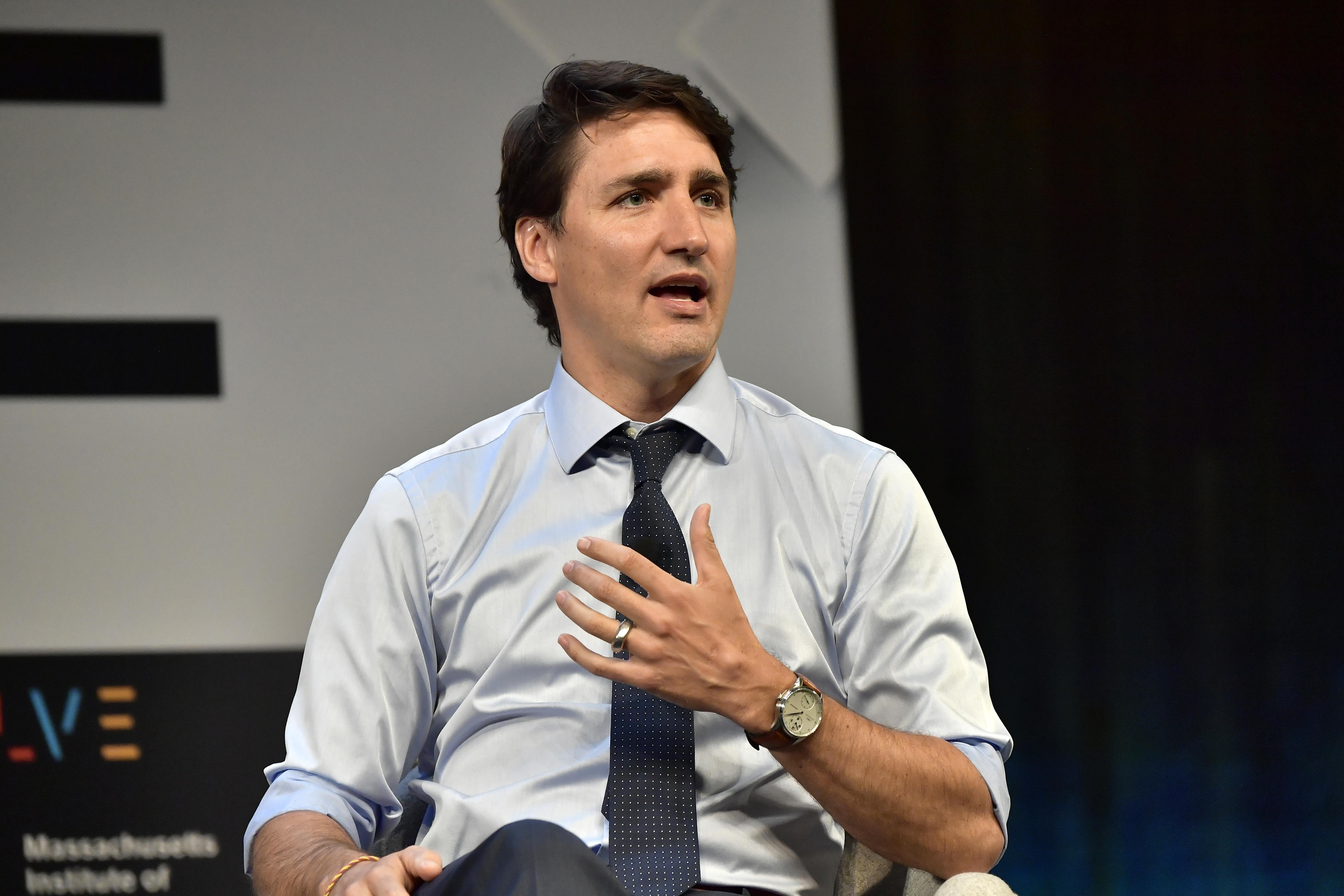How bad are U.S. and Canadian relations right now? Well, today the Trump administration announced that it would slap steel and aluminum tariffs on Canada. Canada announced it would retaliate with tariffs of its own. And then, at the press conference, Canadian Prime Minister Justin Trudeau shared a story that makes it sound like negotiations over the North American Free Trade Agreement—the deal that makes the entire modern supply chain for many major industries possible on this continent and keeps much of America’s farm country afloat—really have hit a brick wall.
Trudeau told reporters that he thought negotiations over NAFTA were going well enough that last week he suggested a in-person meeting with Trump and Mexican President Enrique Pena Nieto in Washington to hammer out a final deal. “We already had the bones of a very good agreement for all parties, and I thought it might be opportune for all of us to sit down for a few hours and discuss it,” he said. On Tuesday, Vice President Mike Pence called to say, sure, the White House would host the meeting, but only if Trudeau agreed in advance to add a five-year sunset clause to NAFTA, meaning that the pact would expire after five years unless the U.S., Canada, and Mexico all agreed to renew it. “So I answered that, unfortunately, if that was a precondition to our visit, I was unable to accept — and so we did not go to Washington for that day of negotiations.”
Trudeau has previously criticized the Trump administration’s desire to stick a five-year expiration on NAFTA. He called it a “key sticking point” at an event in New York earlier this month that neither Mexico nor Canada would agree to. Trudeau’s position is totally reasonable. While trade deals do tend to become outdated and should be renegotiated from time to time, they also don’t work very well when they’re explicitly temporary. As the cliche goes, businesses like certainty, and when executives decide to build a factory abroad, or start buying from a foreign supplier, they want to know that their decision will still make sense years down the road. Economists have argued, for instance, that one of the reasons U.S. commerce with China surged in the early 2000s was that Bill Clinton finally granted Beijing permanent normal trade relations. That move did not actually lift any tariffs, but it did end an annual ritual in which Congress had to essentially renew China’s trade rights. It gave investors and corporations the confidence that they could safely buy goods or set up shop there.
It’s hard to tell whether the Trump administration is truly determined to set an egg timer on NAFTA, though the fact that the administration has talked before about making trade deals more temporary suggests officials think it’s a good idea. But it’s also possible Pence was simply reiterating an unreasonable demand that he knew Trudeau wouldn’t accept in order to derail the talks. Either way, Trudeau’s story seems like a sign that negotiations are in an even worse place than many thought.
